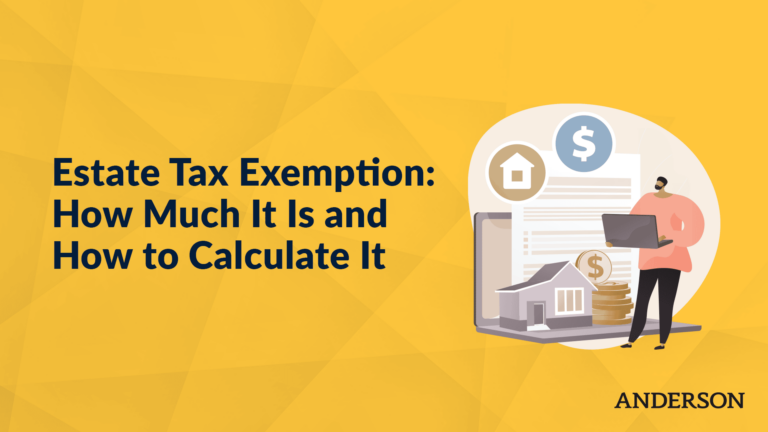Talking to parents about estate planning can be challenging in the best scenario. Toby Mathis, Esq. offers a new way to approach this topic with parents to encourage open dialogue and the proper perspective.
Updated October 2, 2021
Talking to parents about estate planning can be difficult. Oftentimes, the children starting the conversation will have a clear idea of what to do, but the parents won’t be interested in the discussion. In my experience, the success of estate planning conversations comes down to approach. The way you approach it makes all the difference.
First of all, no one likes to talk about their impending passing away. We can all understand this. Instinctively, parents don’t like to talk to their kids about three things: sex, money, and death. We have a natural aversion to it. So, why would you approach your parents and this important discussion from the perspective of What’s going to happen when you pass?
Instead, I recommend approaching the topic of estate planning from three perspectives: medical, financial, and legacy planning.
Medical Planning
Instead of beginning the conversation by saying Let’s talk about what’s going to happen when you pass, reframe it. Often, it helps to approach your parents from the perspective of concern that their wishes are always respected in the event they need an advocate. You could ask, We need to worry about advocacy in the event you’re not able to advocate for yourself. This is something everyone — me included — needs. Who would you like that to be?
This needs to be in writing to make sure that the advocate has the needed authority to talk with doctors about the parent’s health, with the appropriate HIPAA releases. There needs to be documentation in place before the need actually arises because, at that point, it’s too late. If there’s a need for a medical advocate and no documentation has been put in place, there’s no recourse except to go through the court system.
Regardless of age, we all need to have a documented medical advocate, called a medical power of attorney. Any time you go under general anesthesia, you are unable to make medical decisions for yourself. Thus, you need an advocate.
Financial Planning
Another important aspect of estate planning that’s relevant to everyone (regardless of age) is financial planning. Akin to medical planning but distinct, your financial advocate is who makes financial decisions on your behalf in the event you are unable to make decisions for yourself. This includes paying your bills.
Regardless of age, we all need someone designated to make financial decisions for us in the event that we can’t. For instance, I had a 30-year-old client with four rental properties in the US who become sick in a foreign country. Unfortunately, the client was unable to return to the US for six months. Although their mother attempted to contact their mortgage lenders during this six-month period, the banks would not speak to the mother about the accounts. The client was devastated to eventually return home and find all four of their rental properties had gone into foreclosure.
This is why, in addition to a medical power of attorney, you also need a financial power of attorney — to advocate for you in the event that you cannot make decisions for yourself.
The most important thing to understand about this is that you put this documentation in place before the need arises. Once the need arises, it’s too late.
If you don’t have anything in place when you need an advocate, you’re left with going through the judicial system to get the court to appoint you as an advocate. This is difficult, time-consuming, and often won’t provide the desired outcome. It’s common to see the state step in and reject individual requests to be an advocate.
Legacy Planning
Here’s where I want you to let yourself (and your parents) dream. Instead of asking your parents What’s going to happen when you pass?, ask: What kind of legacy do you want to leave?
With this question, you’re getting at the root of what’s most important to your parents. Their assets are only a byproduct of their defining actions. So ask: How do you want to define your legacy?
I know some of you are already thinking about giving certain items to certain family members. Perhaps there are family heirlooms or jewelry your parents may want to go to specific people. That’s fine, but the more important question is their legacy.
We do not live in a die-and-distribute world. That’s not in anyone’s best interests. Statistics show that recipients of windfalls (large inheritances or winnings) have an exponentially higher likelihood of declaring bankruptcy. In some cases, the likelihood of bankruptcy goes up 30,000% (in the cases of lottery winners). In the case of inheritances, it’s been statistically shown that, for every $1 of inheritance, only $0.16 will remain after five years.
The takeaway is this: If you want to create a difference and leave a major impact on your descendants, you define that legacy. Think in terms of 200-300 years, not 20-30.
Don’t approach the conversation about estate planning with your parents from the perspective of Who gets the stuff? They won’t be as amenable and may even view your motives with suspicion. Instead, ask them: What kind of legacy do you want to create?
When talking to parents about estate planning, the point is to get your parents thinking about what they value. Maybe they value education or travel. They can create a living trust that will ensure their descendants realize the importance of whatever they value.
Living Trusts Cover All Three
Ultimately, all three of these concerns are addressed by creating a living trust. You cannot address all three with a will, and you certainly can’t address all three by doing nothing. Only a living trust wraps up all three major estate planning concerns in one cost-effective document.
To be clear: if you go the “do nothing” route and pass without any documentation in place, your assets will go through the court system via probate. If you own real estate, your assets will go through probate in every state wherein you own real estate. Thus, if you own property in four states like my earlier example, your estate will go through four separate probates.
Your parents may say that they don’t have enough assets to justify the cost of a living trust, or that trusts are only for the wealthy. The truth is that living trusts are significantly less expensive than probate. The average cost of wills is 20% of the assets given, whereas the average cost of living trusts is way less than $10,000 — in most cases, less than $5,000. If you form a living trust with Anderson Advisors, it’s even less.
Whether you’re ready to form a living trust or simply want to discuss your estate planning options with experts in a no-obligation, no-cost setting, reach out to schedule a complimentary consultation with one of our experienced and caring advisors. You can schedule online or by calling 1-800-706-4741.
As always, take advantage of our free educational content and every other Tuesday we have Toby’s Tax Tuesday, a great educational series. Our Structure Implementation Series answers your questions about how to structure your business entities to protect you and your assets.
Additional Resources:
- Claim your FREE Strategy Session, and learn how Anderson Advisors can protect your assets.
- Join our next Tax & Asset Protection event to learn more advanced tax minimization & entity structuring strategies
- For all things investing, check out the Infinity Investing YouTube channel
- Subscribe to our YouTube channel to make sure you never miss the latest strategies & updates
Bonus Video











